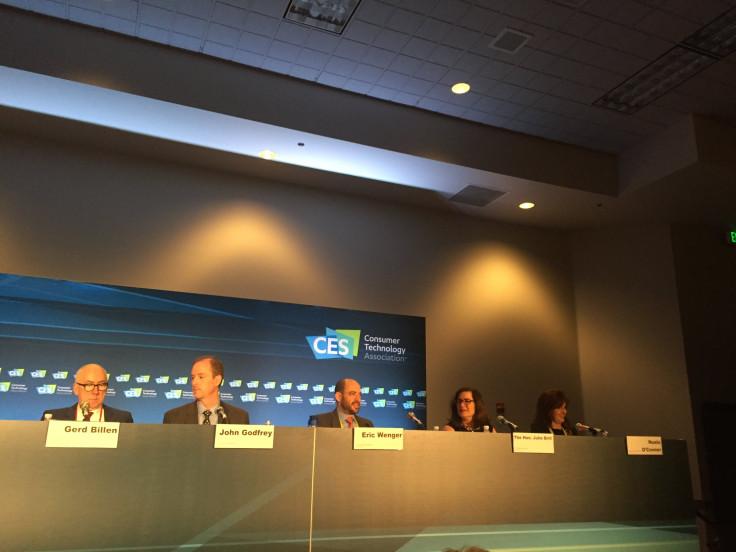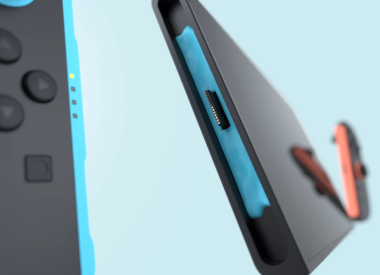As our lives become increasingly technology driven, the amount of personal data collected, shared and exchanged along with privacy/security concerns of connected devices means government officials are taking a long look at what the IoT (Internet of Things) means for users, companies and policymakers in the future.
The IoT is the connected network of objects (Wi-Fi, software, electronics, etc) that allow these "things" to collect and exchange data. These devices use connectivity to allow you to communicate with devices and allow them to perform functions they couldn’t without it.
Six years ago, the number of Internet connected things “surpassed the number of people in the world,” said Alan Davidson, Director of Digital Economy with the Department of Commerce. “There are now 25 billion connected devices.”
Davidson and various other stakeholders in the IoT held a forum at CES 2016 to discuss the role government and business should play in making sure the public’s interests are served well with the IoT.
“This is not going to happen in a vacuum,” Davidson said. “(It will be) shaped by consumer tastes and market fluctuation and public policy.”
Eric Wenger, Director of Cybersecurity and Privacy Policy Global Government Affairs at Cisco, said it’s important for government and technology companies to get privacy and security issues right at the outset because “things that can be connected will be connected at some point.”
Today, connected devices allow you to turn on devices in your basement while you’re cooking dinner through a voice command. There are “smart” refrigerators with cameras that let you know see what you need to buy while you’re at the grocery and even an Internet-connected frying pan.
“The Internet will disappear through the Internet of things,” said Julie Brill of the Federal Trade Commission. “Devices will just start to be connected.”
Nuala O’Connor, President and CEO of the Center for Democracy & Technology, admitted she would be the skeptic and “fear monger” on the forum about security and privacy. She said we need to remember that this is an Internet of people and not just an Internet of things that will be impacted.
“What I worry about is the level of granularity, the amount of data that will be collected about us in our homes,” O’Connor said. “… I’m very excited (about IoT) but I’m also concerned that all of these devices will create this completely observed life… the always on life.”
O’Connor said before to joining the Center for Democracy & Technology she worked at Amazon and specifically on the Amazon Echo. There, she said that from the beginning a clear on/off switch for privacy was at the forefront of design and implementation.
She said it’s up to companies to have “good, thoughtful limitation” when it comes to data collection.
“It’s about corporate social responsibility for the digital age,” she said.
Brill said it’s up to government and business to cooperate to simplify and ensure privacy needs are met because a majority of the public won’t take the necessary step to protect their data or don’t have the know-how.
“Humans aren’t going to change that much,” Brill said. “Security is not a job for consumers to figure out.”
Today, Brill said, 90 percent of connected devices are sharing personal information with more than 70 percent of those devices sharing information on unencrypted networks.
“Most people are going to Internet because they want to do something not because they want to find out about their data,” Brill added. “I think it is asking too much... more needs to be done by companies to help consumers figure this out.”
John Godfrey, SVP, Public Policy, Samsung Electronics America, agreed.
“Some of the challenges are already existing in the Internet,” Godfrey said of privacy and data collection. “Sharing huge amounts of data online, social media and web searching. Society is still figuring out the best practices and (trying to) make sure they can make an informed choice.”
It wasn’t all dreary, (most of it wasn’t) as the IoT does mean lives of the public can be become better in a connected world.
“The thing I’m excited about most is how IoT will impact consumers,” said Godfrey. “I think it’s a lot more than when you get out of bed your coffee pot (automatically) turns on.”
Godfrey said the IoT means people will be able to lead an easier, more powerful and independent life. He cited how people with disabilities will continue to see technology help them reach levels of independence the never envisioned thanks to new technologies.
Blind people can have connected devices order them milk when they’re out, Godfrey said. For another example, he said on the CES showroom floor he spoke with someone with a family member who has Parkinson’s. Every morning he opens the blinds, gets out of bed, turns on the lights “but it would make his life a lot easier if those things that would happen automatically.”
“Profoundly, I’m excited about the ability of individual to achieve more,” O’Connor said.

















